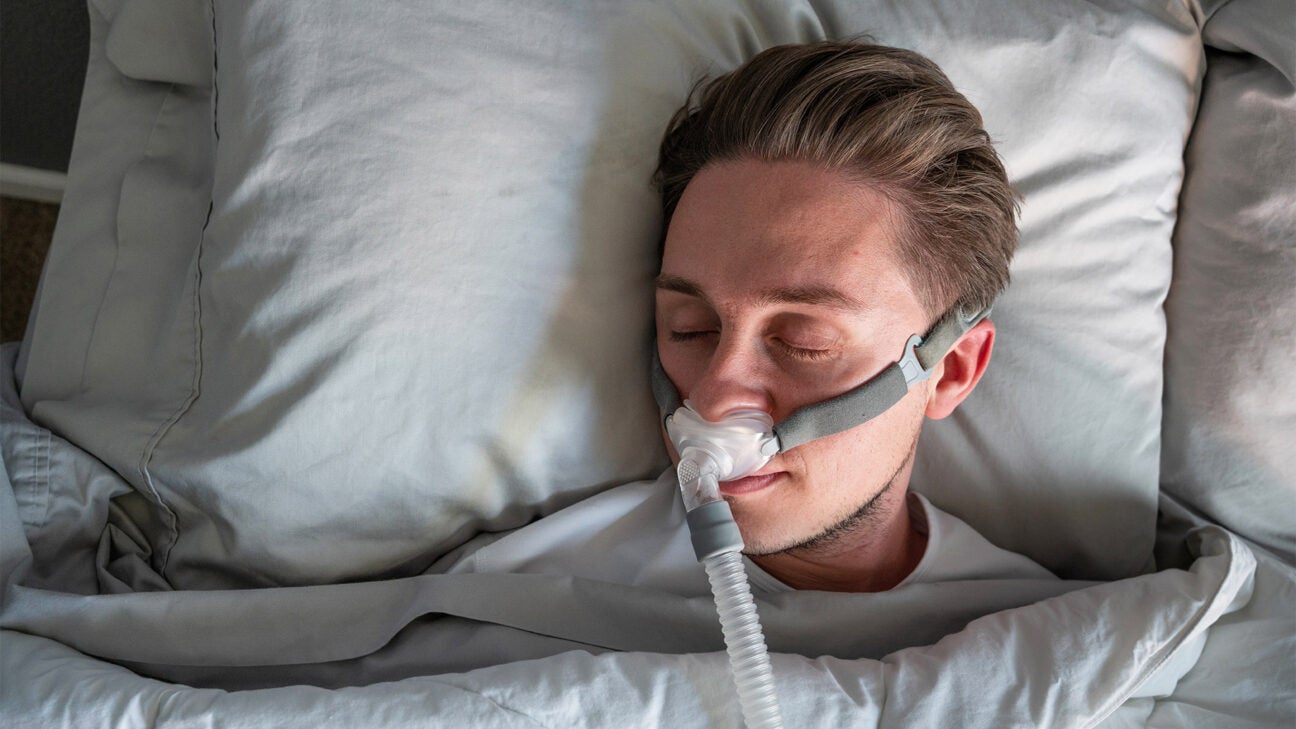
- Obstructive sleep apnea is the most common sleep-related breathing disorder.
- CPAP devices are effective, but many people find them cumbersome and don’t use them consistently.
- Reboxetine, a depression medication, might help reduce the severity of sleep apnea for some people.
The negative effects of consistently poor sleep can’t be overstated.
It can impact your cardiovascular health, mental health, increase chronic pain, cause weight gain, and increase your risk of dementia.
Experts estimate that nearly 1 billion people worldwide have obstructive sleep apnea (OSA), a condition that causes your airway to narrow or close while you’re sleeping. This can negatively affect the amount and quality of your sleep.
And many people with sleep apnea don’t know they have it.
“Sleep apnea is a widely under-diagnosed condition, with approximately 6 million individuals in the U.S. diagnosed out of an estimated 30 million,” Dr. Thomas Yadegar, a pulmonologist and medical director of the intensive care unit at Providence Cedars-Sinai Tarzana Medical Center in California, told Healthline.
There are many ways to treat OSA, according to Dr. Alex Dimitriu, the founder of Menlo Park Psychiatry & Sleep Medicine in California and BrainfoodMD.
“There’s surgical interventions, oral appliances, positional therapy, and lastly, CPAP, the gold standard treatment,” Dimitriu told Healthline.
CPAP therapy — short for continuous positive airway pressure — involves wearing a facemask while you sleep. The mask is connected by an air hose to a small bedside machine.
While it’s highly effective, adherence is low.
“Many people are searching for a simpler solution — something that’s more portable and doesn’t require them to wear something,” Dr. Stephanie Stahl, a sleep medicine physician at Indiana University Health, told Healthline.
It’s just not as simple as, say, taking a pill.
That’s what led researchers in Australia to examine the effectiveness of reboxetine — an antidepressant medication — in treating OSA. Their study was recently published in the Journal of Clinical Sleep Medicine.
And while the results showed some promise, experts say don’t get rid of your CPAP machine just yet.
Altering brain chemistry during sleep
Pharmacological strategies for OSA generally fall into two categories: drugs used to increase respiratory drive (e.g., theophylline) and drugs used to reduce collapsibility in the upper airway. The latter approach typically involves changes in the activities of neurotransmitters like acetylcholine and norepinephrine (also called noradrenaline).
The neurotransmitter acetylcholine activates muscarinic receptors. During the rapid eye movement (REM) phase of sleep, muscarinic receptors play a role in the relaxation of your muscles. Specifically, muscles in your tongue and pharynx (the cavity connecting your nose, mouth, and esophagus).
During the non-rapid eye movement (NREM) phases of sleep, norepinephrine interactions can control the relaxation of these same muscles.
If you have OSA, these muscles become too relaxed, temporarily closing off airflow and causing sleep disruptions.
By altering the amount of these chemicals in your brain at the appropriate times, it could be possible to lessen the severity of OSA.
In this study, researchers used the drug reboxetine to alter participants’ norepinephrine levels during sleep. It doesn’t affect muscarinic receptors.
If it’s effective for treating OSA, then future research might only need to focus on one chemical instead of two.
What were the results?
Researchers said reboxetine did in fact reduce OSA severity. A control group who took reboxetine along with an antimuscarinic drug didn’t show an improvement over the reboxetine-only group.
But the study wasn’t without its limitations.
What do the experts say?
First of all, reboxetine has a somewhat shrouded reputation.
While it’s been used for decades to treat depression in other countries under various brand names, reboxetine isn’t approved by the Food and Drug Administration (FDA) for use in the United States.
“Reboxetine is full of side effects,” said Dimitriu.
“A medicine like reboxetine certainly helps breathing, but then has other unwanted effects on the brain and body. It’s like taking antibiotics or chemotherapy: a body-wide treatment with body-wide side effects for a localized problem,” he explained.
Reboxetine isn’t the only compound that has the ability to affect norepinephrine.
OSA severity is measured using the apnea-hypopnea index (AHI). It’s an average of how many times per hour your breathing is obstructed for at least 10 seconds. The scores breakdown is as follows:
- <5 is normal sleep
- 5-14 is mild
- 15-29 is moderate
- >30 is severe
In this study, AHI scores dropped by 5.4 using reboxetine. Is this enough to allow you to stop using a CPAP machine?
“While the study only included 16 participants, it is difficult to make a comprehensive recommendation,” said Yadegar.
“A 5-point reduction could theoretically get someone back below an AHI of 5, but for most people with sleep apnea, this would not be enough of a reduction to call it a ‘cure,’” said Dimitriu.
Additionally, the path to an FDA-approved treatment could be a long one.
“The studies looking at reboxetine [for OSA] have been small, single-night assessments. Longer-term evaluation and larger studies are needed,” said Stahl.
“Research and approval for a new medication can take over 10 years… approval could happen quicker but would still likely take several years,” Stahl added.
While the study results are intriguing and may provide a new path forward for future research, experts say reboxetine isn’t quite ready for wide use in treating OSA.
“At this time, it seems unlikely that pharmacologic treatment will replace CPAP therapy, especially for people with severe obstructive sleep apnea. Most people actually do well with CPAP if they have the right mask and pressure. The key is to work with your doctor to explore what options may work best for you,” said Stahl.
Sleep Apnea: How a Medication Used to Treat Depression May Help
Source: Pinoy Lang Sakalam



0 (mga) komento:
Mag-post ng isang Komento